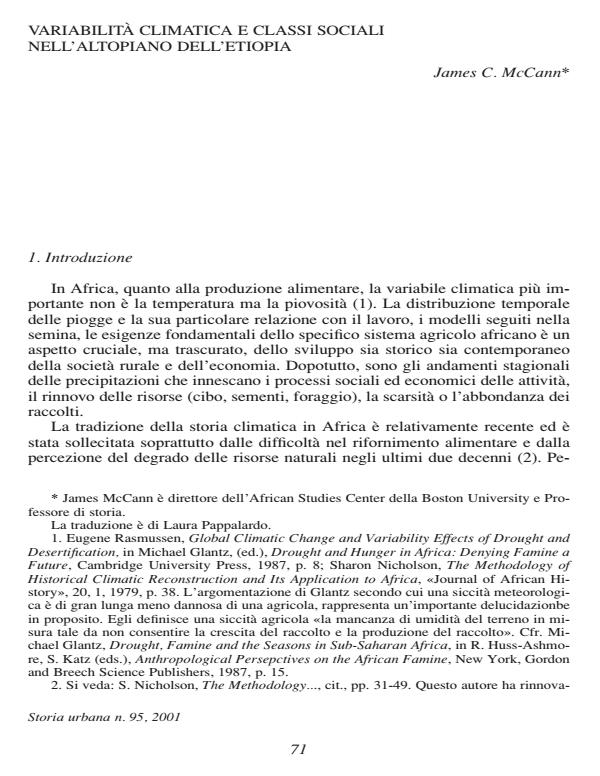Variabilità climatica e classi sociali nell'altopiano dell'Etiopia
Titolo Rivista STORIA URBANA
Autori/Curatori James McCann
Anno di pubblicazione 2002 Fascicolo 2001/95
Lingua Italiano Numero pagine 22 P. Dimensione file 86 KB
DOI
Il DOI è il codice a barre della proprietà intellettuale: per saperne di più
clicca qui
Qui sotto puoi vedere in anteprima la prima pagina di questo articolo.
Se questo articolo ti interessa, lo puoi acquistare (e scaricare in formato pdf) seguendo le facili indicazioni per acquistare il download credit. Acquista Download Credits per scaricare questo Articolo in formato PDF

FrancoAngeli è membro della Publishers International Linking Association, Inc (PILA)associazione indipendente e non profit per facilitare (attraverso i servizi tecnologici implementati da CrossRef.org) l’accesso degli studiosi ai contenuti digitali nelle pubblicazioni professionali e scientifiche
Perceptions of the relationship between climate and history in historiographic studies of Europe, America, and Africa have changed substantially over the last three decades. With regard to Africa, much concern over climate as a factor in economic and political change came in the wake of the 1968-72 Sahelian drought and the 1984-86 East African drought. But the first attempts to apply climate data to historical issues represented a false start, since they tried to establish a direct relationship between climate and human activity. Recent research points to a relationship between global climate phenomona (such as El Nino) and African patterns of drought. More recent emphasis in African history has also focused on patterns of social response to seasonal patterns during the year that have conditioned social and economic institutions. There is now a new generation of environmental scholars on Africa who do not focus directly on climate but rather consider it as a feature that affects a wider set of factors within the natural world.
James McCann, Variabilità climatica e classi sociali nell'altopiano dell'Etiopia in "STORIA URBANA " 95/2001, pp , DOI: